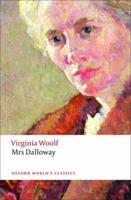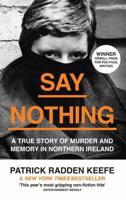Publisher's Synopsis
The British middle class of the early nineteenth century was defined by its nervous complaintshysteria, hypochondria, vapours, melancholia, and other maladies. Peter Melville Logan explores the link between medical theories of nervous physiology and narrative issues central to the literary writing of the period. He examines the assumption, implicit in medical thinking at the time, that the nervous bodyunlike its non-nervous counterparthas a narrative inscribed on its nerve fibers. It becomes "the body with a story to tell."
Logan takes up several literary works whose nervous narrators connect their present disorder with an unnatural, unhealthy social order. Concentrating on novels by Godwin, Hays, and Edgeworth, and on De Quincey's Confessions of an English Opium-Eater, Logan weaves cultural phenomena such as crowd psychology and attitudes toward opium addiction into the basic paradigm of the nervous narrative. He explains why these social critiques always tended to promote the same distempered civilization that brought them into being. He then looks at the emergence of the working-class body in the 1840s, changing medical theories, and George Eliot's treatment of medicine in Middlemarch.
Logan's book is especially valuable for its rethinking of disciplinary categories that separate medicine from literature and for bringing to light lesser-known literary texts. With a foreword by Roy Porter, it will be a welcome addition to literary, gender, and cultural studies.
Logan takes up several literary works whose nervous narrators connect their present disorder with an unnatural, unhealthy social order. Concentrating on novels by Godwin, Hays, and Edgeworth, and on De Quincey's Confessions of an English Opium-Eater, Logan weaves cultural phenomena such as crowd psychology and attitudes toward opium addiction into the basic paradigm of the nervous narrative. He explains why these social critiques always tended to promote the same distempered civilization that brought them into being. He then looks at the emergence of the working-class body in the 1840s, changing medical theories, and George Eliot's treatment of medicine in Middlemarch.
Logan's book is especially valuable for its rethinking of disciplinary categories that separate medicine from literature and for bringing to light lesser-known literary texts. With a foreword by Roy Porter, it will be a welcome addition to literary, gender, and cultural studies.










